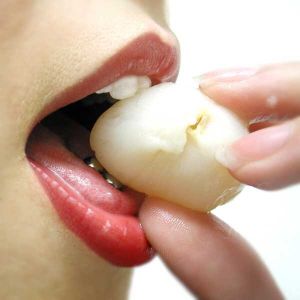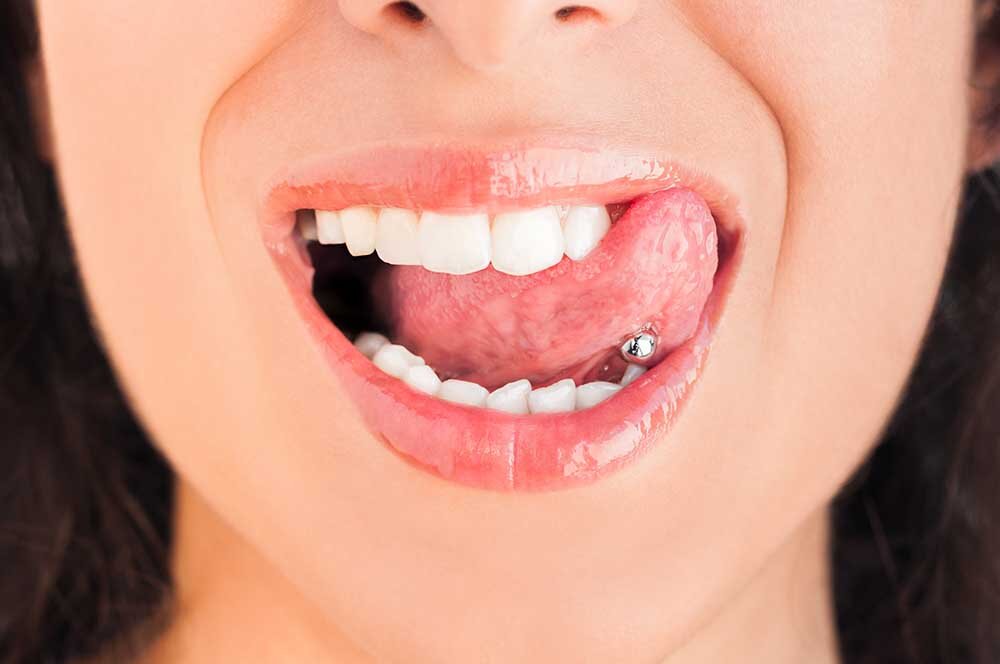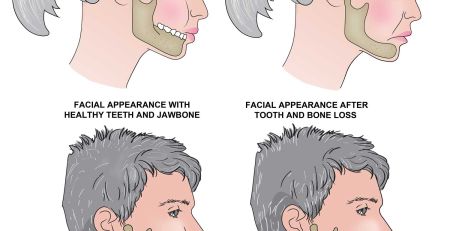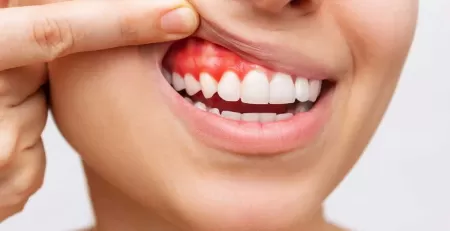Oral piercing has gained popularity as a form of self-expression among many individuals. While it may seem like a trendy fashion statement, it’s important to be aware of the potential risks and adverse effects of oral piercing on oral health.
- Increased risk of infections: Oral piercings create an open wound in the mouth, making it susceptible to bacterial and viral infections. The mouth is home to numerous bacteria, and introducing a foreign object can disrupt the natural balance, leading to infection. Infections can manifest as pain, swelling, redness, and even abscesses, requiring prompt dental intervention.
- Gum and tooth damage: Oral piercings, especially those placed on the tongue or lip, can come into direct contact with the gums and teeth. Constant rubbing of the jewellery against the oral tissues can cause gum recession, leading to gum disease and tooth loss. Additionally, accidental biting or chewing on the jewellery can result in cracked or chipped teeth, requiring extensive dental work to repair the damage.
- Speech and chewing difficulties: Oral piercings, mainly tongue piercings, can affect speech and chewing abilities. A metal stud or barbell in the mouth can alter tongue movement and affect proper pronunciation, leading to speech impediments. It can also cause discomfort and difficulty chewing, potentially impacting nutrition and oral function.
- Increased saliva production and drooling: Oral piercings can stimulate excess saliva production, resulting in increased drooling. This can be inconvenient and socially awkward for individuals, particularly in professional and social settings. Excessive saliva production can also contribute to a moist environment in the mouth, promoting bacterial growth and increasing the risk of oral infections.
- Allergic reactions and metal sensitivities: Some individuals may develop allergic reactions or sensitivities to the metals used in oral jewellery, such as nickel or stainless steel. This can lead to irritation, swelling, and inflammation in the oral tissues, further increasing the risk of infection and complicating the healing process.
 While oral piercing may be an appealing form of self-expression, it’s crucial to consider the potential risks to your oral health. The increased risk of infections, gum and tooth damage, speech and chewing difficulties, excessive saliva production, and allergic reactions are significant concerns associated with oral piercing.
While oral piercing may be an appealing form of self-expression, it’s crucial to consider the potential risks to your oral health. The increased risk of infections, gum and tooth damage, speech and chewing difficulties, excessive saliva production, and allergic reactions are significant concerns associated with oral piercing.
Are lip piercings bad for teeth?
Yes, lip piercings can have adverse effects on dental health.
Oral piercings, such as lip piercings, can lead to various dental problems. Metal jewellery can damage teeth and gums, including chipped or cracked teeth, gum recession, and tooth sensitivity.
Additionally, the constant contact between the jewellery and the teeth can result in enamel wear and erosion. Lip piercings can also increase the risk of infections and complications during dental procedures. It is important to be aware of these potential risks and consult a dental professional before getting a lip piercing.
Can tongue piercing be bad for dental health?
Yes, tongue piercing can have adverse effects on dental health. The presence of oral piercings, mainly tongue piercings, can lead to several potential issues.
Metal jewellery can cause damage to the teeth, gums, and soft tissues of the mouth. It may result in chipped or cracked teeth, gum recession, tooth sensitivity, and an increased risk of infections. The constant contact between the metal jewellery and teeth can also cause wear and enamel erosion. It is essential to consider the potential risks and consult with a dental professional before getting a tongue piercing.
If you already have an oral piercing, it’s important to maintain meticulous oral hygiene, regularly inspect the piercing for signs of infection, and consult your dentist if any issues arise. If you are considering oral piercing, weigh the potential risks against the desire for self-expression and make an informed decision.
Disclaimer: The content shared in this article is meant for general knowledge and educational purposes only. It is not intended to replace professional dental or medical advice. For any personal dental concerns, diagnoses, or treatments, please consult a qualified dental professional. Always seek guidance from your dentist or healthcare provider for specific questions related to your oral health. Amazing Smiles does not make any guarantees regarding outcomes based on the information presented here.




